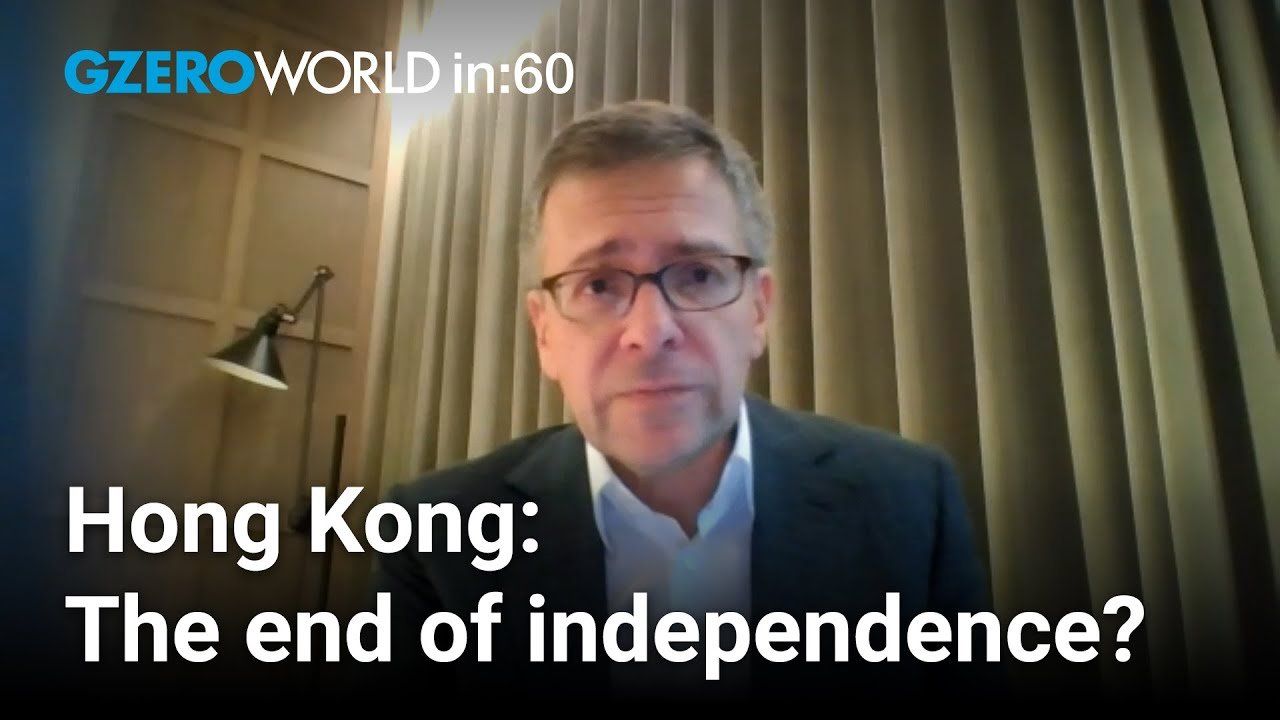Ian Bremmer shares his insights on global politics this week on World In :60.
How will the new security law affect all aspects of life in Hong Kong?
Takes away small remaining vestiges of political independence, none of which people expected were going to be maintained for long. The Chinese government really fast tracked this, which did, you know, antagonize a lot of people on the island. But at the same time, I mean, they're already basically shut down, you know, free Democratic media and made it impossible to engage in demonstrations that were seen as difficult or upsetting to the mainland. I mean, Hong Kong is no longer a bridge into mainland China. It is now a component of a greater Chinese economy. And to the extent that economy starts turning around and doing better, Hong Kong will do well. It's not right now, so it's not performing quite as effectively. And, you know, a lot of the expats have already gotten out of Dodge.
Is Haiti becoming a failed state?
Does look that way. I mean, we certainly don't yet have any significant policing on the ground, nor do we yet have any international peacekeepers. And even if we have them, the historical experience with them has been checkered at best. There's no effective leadership in the country. So interesting, you know, they share an island with a border right down the middle with the Dominican Republic, and the DR is one of the most effective economies in Latin America today. Just goes to show you that governance really, really matters. So painful to see this happening and so close to the United States. American willingness to put a little bit of money in, sure, but to do anything significant to try to create stability. Not at all.
Will Trump's difficulty paying his legal judgments hurt his campaign?
You would think it would, because, you know, historically, the United States has the most expensive and long electoral campaign in the world. And if you don't have money, you're not supposed to run it very effectively. But of course, Trump also is unique in his ability to get just dominate the media cycle for free. He makes headlines and he lives in everybody's head. And in that regard, it's not as important for him to have a huge amount of cash. He's also former president. And, you know, having a former president, a sitting president running against each other, it's not like he's a non incumbent that doesn't have brand recognition. That's also important for him. But at the margins, yeah, I don't think it's as important as, you know, how people feel about abortion or immigration or the economy or democracy. But is it on the top ten? Yeah, probably the top ten, may almost crack top five.
More For You
100 million: The number of people expected to watch the Super Bowl halftime performance with Bad Bunny, the Puerto Rican superstar and newly minted Album of the Year winner at the Grammys.
Most Popular
Think you know what's going on around the world? Here's your chance to prove it.
An imminent US airstrike on iran is not only possible, it's probable.
Americans are moving less — and renting more. Cooling migration and rising vacancy rates, especially across the Sunbelt, have flattened rent growth and given renters new leverage. For many lower-income households, that relief is beginning to show up in discretionary spending. Explore what's changing in US housing by subscribing to Bank of America Institute.
